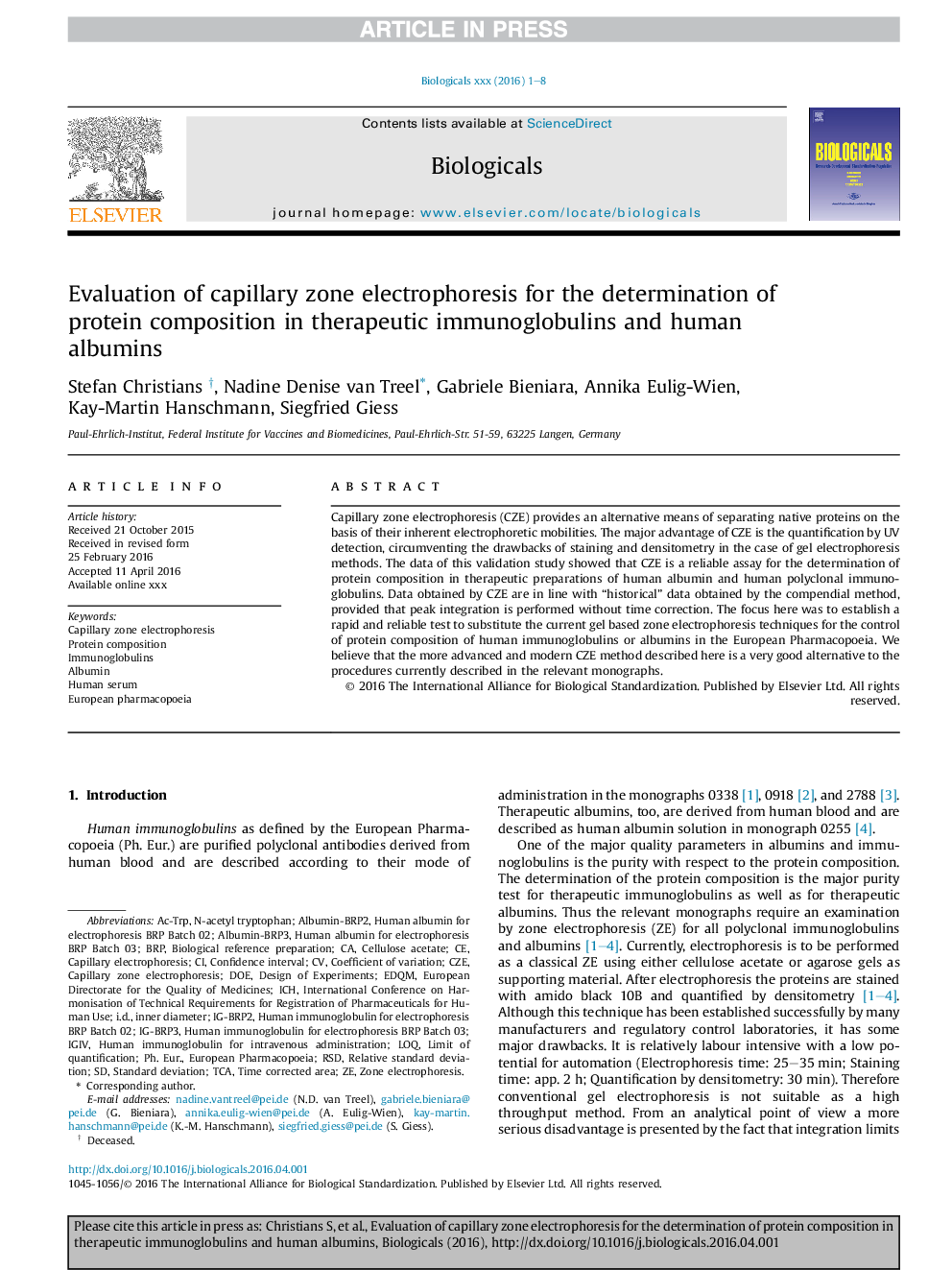| Article ID | Journal | Published Year | Pages | File Type |
|---|---|---|---|---|
| 10852512 | Biologicals | 2016 | 8 Pages |
Abstract
Capillary zone electrophoresis (CZE) provides an alternative means of separating native proteins on the basis of their inherent electrophoretic mobilities. The major advantage of CZE is the quantification by UV detection, circumventing the drawbacks of staining and densitometry in the case of gel electrophoresis methods. The data of this validation study showed that CZE is a reliable assay for the determination of protein composition in therapeutic preparations of human albumin and human polyclonal immunoglobulins. Data obtained by CZE are in line with “historical” data obtained by the compendial method, provided that peak integration is performed without time correction. The focus here was to establish a rapid and reliable test to substitute the current gel based zone electrophoresis techniques for the control of protein composition of human immunoglobulins or albumins in the European Pharmacopoeia. We believe that the more advanced and modern CZE method described here is a very good alternative to the procedures currently described in the relevant monographs.
Keywords
EDQMRSDBRPDOELOQIGIVPh. Eur.CZETCAAlbuminCellulose acetateCapillary zone electrophoresisCapillary electrophoresisrelative standard deviationstandard deviationimmunoglobulinsProtein compositionHuman serumi.d.Coefficient of VariationDesign of experimentsEuropean Pharmacopoeiaconfidence intervalinner diameterlimit of quantificationICHInternational Conference on Harmonisation of Technical Requirements for Registration of Pharmaceuticals for Human Use
Related Topics
Life Sciences
Biochemistry, Genetics and Molecular Biology
Biochemistry, Genetics and Molecular Biology (General)
Authors
Stefan Christians, Nadine Denise van Treel, Gabriele Bieniara, Annika Eulig-Wien, Kay-Martin Hanschmann, Siegfried Giess,
